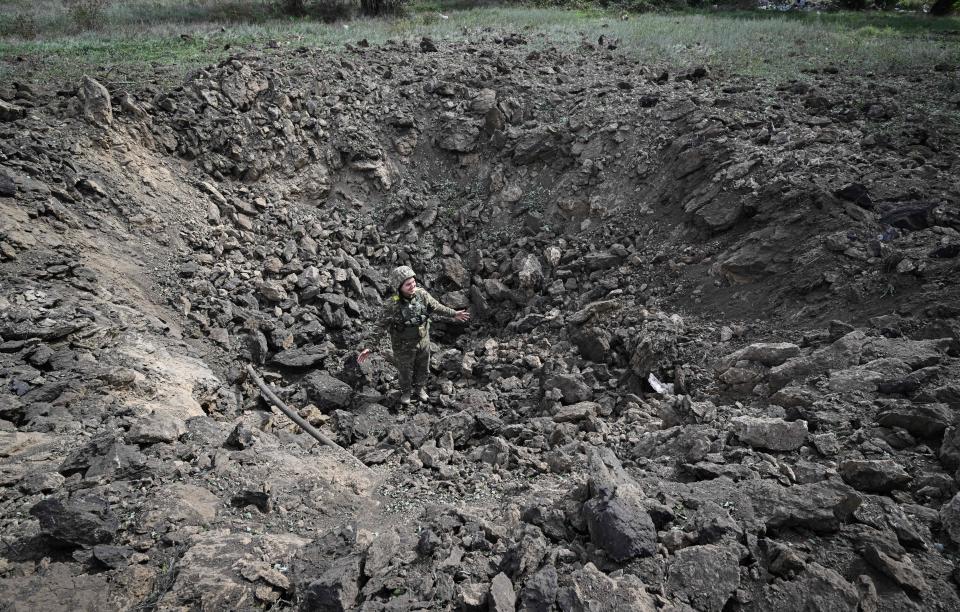This week in ag. and environment: Hurricanes, purple tomatoes and more
Hello, A-J Readers!
I'm Brandi Addison, the regional agriculture and natural resources reporter for the Lubbock Avalanche-Journal, covering all things from the earth to the sky.
Today, I'm debuting a routine column that rounds up some of the biggest recent news in agriculture and environment around our nation and world.
Among this week's topics: the threat of Hurricane Ian, the aftermath of Hurricane Fiona, the possibility of genetically modified purple tomatoes, and the truth behind a rumor about Ukrainian farmland.
Hurricane Ian
Florida's Manatee County board of commissioners declared a local state of emergency Saturday in advance of then-Tropical Storm Ian — which has since evolved into a category 3 hurricane — Sarasota Herald-Tribune reported as part of its ongoing updates on the storm.
By Sunday, the storm's path had shifted to the west, moving the storm's central impact to northern Florida.
In a separate story on USAToday.com, Rewrite Chief Journalist John Bacon cited Accuweather in saying the storm could reach Category 4 status, which means sustained winds between 130 mph and 156 mph.
Bacon also reported that Florida Gov. Ron DeSantis has said it is too soon to determine when, or even if, Ian will make landfall but evacuations are possible.
Hurricane Fiona

USA Today Breaking News Reporter Christine Fernando reported on the detrimental aftermath of Hurricane Fiona, which made landfall in Canada after passing through Bermuda on Friday and hitting much of the Caribbean — including Puerto Rico, the Dominican Republic and the Turks and Caicos Islands — earlier in the week.
Fernando cites the Canadian Hurricane Center in referring to Fiona as a "historic storm for eastern Canada" and "potential landmark weather event." Hurricanes are fairly rare in the region as most storms begin to weaken when they reach colder weathers, Fernando reports.
Now a post-tropical cyclone, Fernando reports that Fiona is expected to gradually weaken over the next few days, after washing away homes in the floodwaters, collapsing some roofs and bringing widespread power outages to Canada. About 400,000 Nova Scotia Power customers did not have electricity Saturday morning, Fernando wrote.
Additionally, there was no serious damage in Bermuda, but officials among the Caribbean islands have reported at least five deaths across the Dominican Republic, Guadelope and Puerto Rico, which suffered devastating floods after receiving up to 30 inches of rain in some areas.
Purple Tomatoes

USA Today Universial NOW Reporter Natalie Neysa Alund reported on the newest produce to soon hit supermarket shelves: genetically modified purple tomatoes.
The U.S. Department of Agriculture signed off on the approval earlier this month to allow people to purchase seeds and grow the emerging fruit.
Attributing a report from Norfolk Plant Sciences, Alund reports that the purple tomatoes may mark a turning point for genetically modified foods nationwide.
"Their engineered trait is meant to entice the shopper — not the farmer," Neysa Alund wrote.
Ukranian Farmland

USA Today Fact Check Audience and Reporting Fellow Molly Stellino has shut down rumors that state Ukraine President Volodymyr Zelenskyy sold 17 million hectares of land to U.S. corporations.
The Aug. 9 post — which was shared on Facebook more than 1,300 times by the time she determined the claim was baseless — rumored that President Zelenskyy sold agricultural land to corporations Monsanto, Dupont and Cargill.
"Yes, you read it well... 17 million hectares to GM0/chemical companies," the post wrote.
Stellino states that foreign entities cannot own land under Ukrainian law, nor does President Zelenskyy have the power to sell land.
This article originally appeared on Lubbock Avalanche-Journal: This week in agriculture and environment

